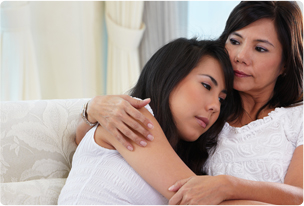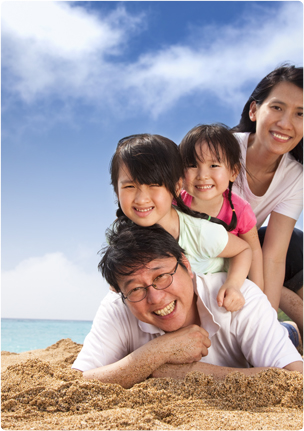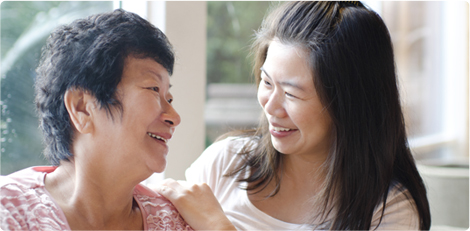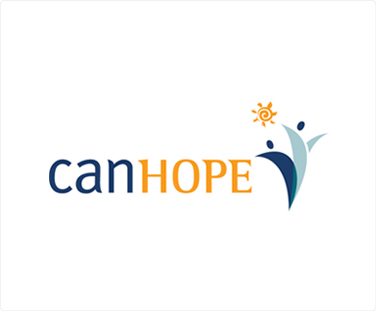Taking Time

Cancer Will Change Your Life
Cancer is a major illness, but not everyone who gets cancer will die from it. Just like anyone with a chronic health problem, people who have cancer must get regular checkups for the rest of their lives, even after cancer treatment ends. But unlike other chronic health problems, if you have cancer you probably will not need to take medicine unless indicated by the Doctor or eat special foods once you have finished treatment.

If you have cancer, you may notice every slightest ache, pain, or sign of illness. Even little aches may make you worry. While it is normal to think about dying and it’s healthy to explore your feelings about death, it is also important to focus on living. Keep in mind that cancer is not a death sentence. Many people with cancer are treated successfully.
Others will live a long time before dying from cancer. So, make the most of each day while living with cancer and its treatments.
PEOPLE RESPOND TO CANCER IN MANY WAYS
This is written to help you learn from other people with cancer. Finding out how others respond to cancer might help you understand your own feelings. Learning how others manage the special problems that cancer brings might help you find your own ways of coping with the problems that come along for you.
YOUR FEELINGS: LEARNING YOU HAVE CANCER
You will have many feelings after you learn that you have cancer. These feelings can change
from day to day, hour to hour, or even minute to minute. Some of the feelings you may go
through include:
|
|
|
All these feelings are normal.
Feeling hopeful is also normal. No one is cheerful all the time, but while you are dealing with
cancer, hope can be an important part of your life.
People with cancer and those close to them experience a wide range of feelings and
emotions. These feelings can change often and without warning.
At times, you may:
- Be angry, afraid, or worried
- Not really believe that you have cancer
- Feel out of control and not able to care for yourself
- Be sad, guilty, or lonely
- Have a strong sense of hope for the future
FAMILY MATTERS

Cancer will change your life and the lives of people around you.
- Your routines may be messed up.
- Roles and duties may change.
- Relationships can be strained or strengthened.
- Dealing with money and insurance can cause problems.
- You may need to live with someone else for a while.
- You may need help with chores and errands.
- Most people find that if they, their friends, and family talk about the cancer and how it makes them feel, they feel closer to each other.
Families come in many forms. Some are husband, wife, and children. Others are life partners. Still others are groups of people who love and support each other.
No matter what form your family takes, your cancer will not only change your life, but also the lives of those around you.
Cancer impacts families in different ways.
SHARING YOUR FEELINGS ABOUT CANCER
Cancer is hard to deal with all alone. Although talking about your cancer can be hard at first, most people find that sharing their thoughts and feelings helps them deal with their cancer.
Keep in mind:- Choose a good listener. You may not need someone to give you advice or tell you what to do. Instead, you may want someone who wants to hear about and try to understand what life is like for you right now. You may need to look outside your family to find such a person.
- Choose a good time to share. Sometimes people will send signals to let you know they are willing to talk about cancer with you. Sometimes you can ask others about their thoughts and feelings.
- Understand anger. Sometimes angry words come from emotions other than anger, like frustration, worry, or sadness. Try to figure out why you feel angry and why you need to express it. Do not run away from these feelings—share them and try to understand them.
- Don’t pretend to be cheerful. You may want to spare those around you from your strong feelings, but acting cheerful will not help you express your true feelings. Acting cheerful will not give others a true picture of your thoughts and feelings.
- Turn to community resources for help. A support group or a counselor might be able to provide more support.
Friends and family have feelings about your cancer just as you have strong feelings about cancer, your family or friends will react to it as well. For instance, your friends or family may:
- Hide or deny their sad feelings
- Find someone to blame for your cancer
- Change the subject when someone talks about cancer
- Act mad for no real reason
- Make jokes about cancer
- Pretend to be cheerful all the time
- Avoid talking about your cancer
- Stay away from you, or keep their visits short
CHOOSING A GOOD TIME TO TALK

It is hard for other people to know when to talk about cancer. Sometimes people send a signal when they want to talk. They might:
- Bring up the subject of cancer
- Talk about things that have to do with cancer, such as a newspaper story about a new cancer treatment that they just read
- Spend more time with you
- Act nervous or make jokes that are not very funny
Learning About Your Cancer and Feeling More in Control
When you first learn you have cancer, daily life can feel like it is turned upside down. Learning more about your type of cancer and its treatment can help you feel more in control. Learn about your type of cancer and its treatment by:
- Asking your doctor or nurse questions
- Taking notes during your doctor visits
- Getting a second opinion
- Looking up your type of cancer on the Internet
- Visiting a public library or a hospital library for patients and families
Learning about your cancer can help you talk to your doctor about which treatment is right for you.
People Helping People
Even though your needs are greater when you have cancer, it can be hard to ask for help to meet those needs.
To get the help you need, think about turning to:
- Family and friends
- Others who also have cancer
- People you meet in support groups
- People from your spiritual or religious community
- Health care providers
- Caregivers
No one needs to face cancer alone. When people with cancer seek and receive help from others, they often find it easier to cope.
DEALING WITH A NEW SELF-IMAGE
When you have cancer and when you are having treatment for cancer, changes occur.
- You don’t have as much energy as you did before the cancer.
- Your body is not the same as it was.
- If you’re single, your dating life may be awkward. You may face new challenges in your sex life.
- If you have a partner, you may face changes in your relationship.
These changes can be hard to accept. But most people with cancer find that, with time, they are able to develop a new self-image by:
- Staying actively involved in life
- Getting help when they need it
- Talking openly about sex and intimacy with their loved ones
Living Each Day
Living with cancer means not only looking at death but also how to live the rest of your life—whether it is long or short. Take care of daily duties and do things that are fun. Both are needed for a full life.
Many people who have cancer feel that living each day to the fullest means:
- Staying involved in the duties and pleasures of daily life
- Returning to work if possible
- Making plans for the future
“If you wait for tomorrow,
tomorrow comes. If you don’t wait
for tomorrow, tomorrow comes.”
— Senegalese Proverb
WHAT KIND OF SUPPORT IS AVAILABLE?

CanHOPE, a ParkwayHealth initiative together with the multi-disciplinary team of doctors tries to bring about a holistic approach to cancer care at no extra cost. Counsellors manned its cancer counselling service through a hotline and email to provide emotional and psychosocial support to all patients and caregivers to assist them to cope effectively with cancer. A meet and greet service with face-to-face counselling can also be arranged.
Patients, health care professionals & the general public can also receive up-to-date cancer information, its related screening tests, treatment and referral to appropriate cancer services, resources for further rehabilitation and support services, advice on side-effects of cancer treatment, coping strategies, diet and nutrition.
CALL our CanHOPE counsellors: +65 67389333 or e-mail: enquiry@canhope.org
Referral source: www.cancer.gov
Disclaimer Notice:
The information provided on this website is not intended or implied to be a substitute for professional medical advice, diagnosis or treatment. All content, including text, graphics, images and information, contained on or available through this website is for general information purposes only. Parkway Cancer Centre makes no representation and assumes no responsibility if the information, contained on or available through this website, is taken without our specialists’ consult.
